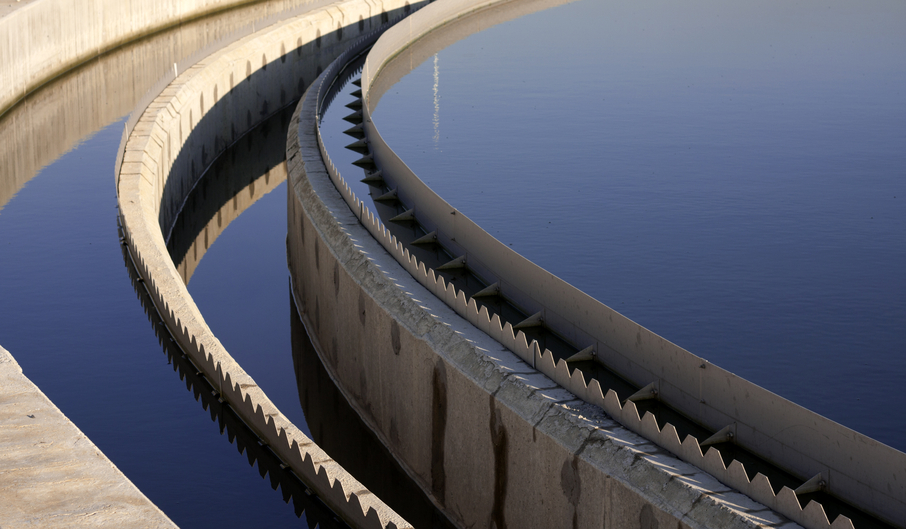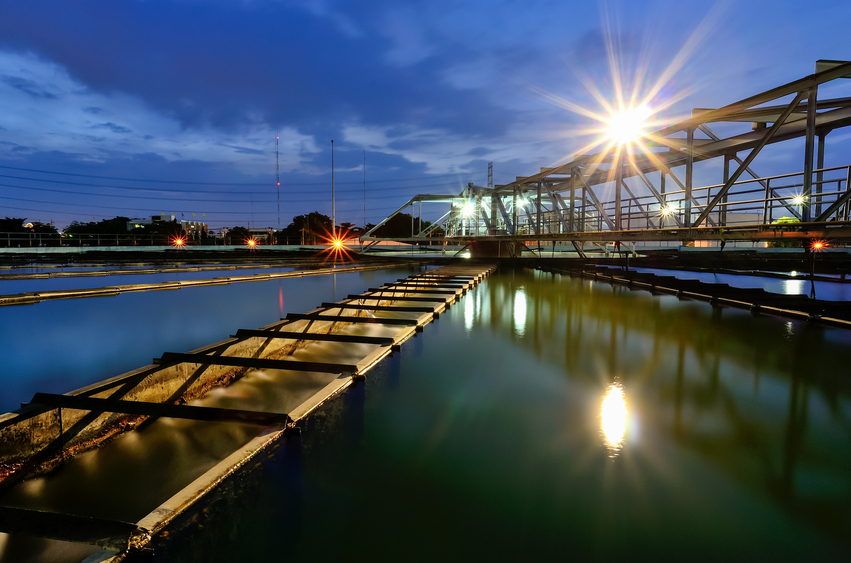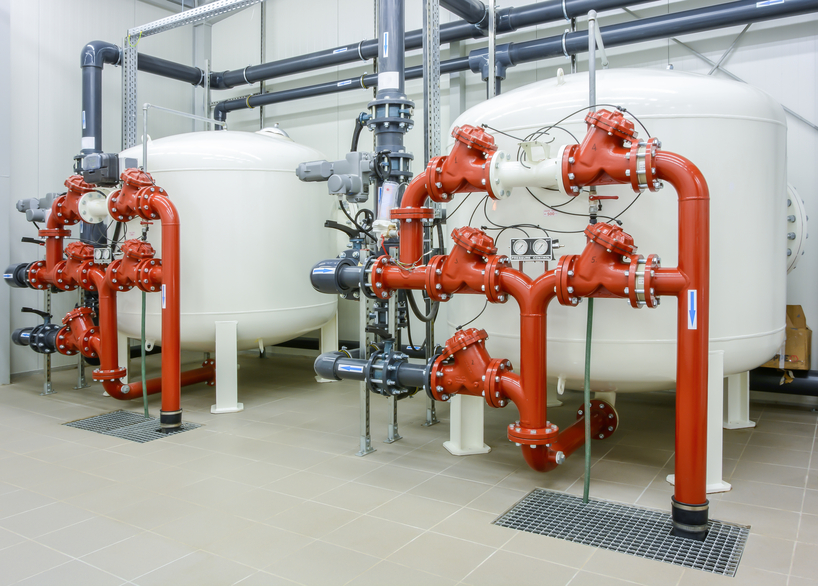Illinois Wastewater and Laws/Rules/Ethics/Sexual Harassment 30 PDH Discount Package 3
Background Use of Onsite Wastewater Treatment Systems (C02-008)
Constructed Wetlands for Water Purification (C08-023)
Force Main Rehabilitation (C08-009)
Package Plants for Wastewater Treatment (C01-008)
Sexual Harassment Prevention for Illinois Professionals (IL1-001)
Engineering Laws, Rules, and Ethics for Illinois Professional Engineers (IL2-001)

This online engineering PDH course will introduce you to the principles and practices of wastewater collection and pumping. You will learn about preliminary sewer design issues, the hydraulic design of gravity and pressure sewers, sewer system layout, appurtenances, and structural design of sewer lines. You will be introduced to the fundamentals of pumped system design, pumping stations and equipment. You will become familiar with sewer piping and pump station components. You will also learn how to approach evaluation and rehabilitation of existing sewer systems.
This 8 PDH online course is intended for civil engineers and other infrastructure design and construction professionals who want to learn about the basic technology, design guidelines and materials and equipment used in design and construction of wastewater collection and pumping systems (sanitary sewer systems) for residential, industrial and commercial developments.
This PE continuing education course is intended to provide you with the following specific knowledge and skills:
- Learning about the approach, requirements, criteria, considerations, and hydraulic calculations used in the design of gravity sewers
- Learning about alternatives to gravity sewer systems that would require deep and expensive trench excavation, such as jacking, boring, and tunneling
- Understanding how the operation and maintenance costs of a pumping station with a forcemain, when capitalized, may offset or be less than the construction costs of a deep gravity sewer system
- Knowing when high groundwater, unstable soil, shallow rock, or extremely adverse topography make gravity sewers, pump or ejector stations unsuitable, low pressure systems using grinder pumps with small diameter pressure sewers may be a solution
- Learning how to calculate the average hourly wastewater flowrate in order to design a sanitary sewer system
- Learning how to calculate extreme peak wastewater flowrates and how to size a sanitary sewer system to accommodate them
- Learning how to design for unintended inflow and infiltration in wastewater collection systems
- Learning about the Manning Formula and how to use it in sewer system design
- Understanding the importance of flow velocity in sewer pipes and velocity guidelines for various flow conditions that may be encountered
- Knowing the basic parameters for sewer pumping station layout
- Familiarizing with the different types of sewage pumps and ejectors and when they are used
In this professional engineering CEU course, you need to review the course document titled, "An Introduction to Wastewater Collection and Pumping".
Upon successful completion of the quiz, print your Certificate of Completion instantly. (Note: if you are paying by check or money order, you will be able to print it after we receive your payment.) For your convenience, we will also email it to you. Please note that you can log in to your account at any time to access and print your Certificate of Completion.

This online engineering PDH course describes how onsite wastewater treatment systems (OWTS) have evolved throughout the years along with changing regulations. It also discusses current uses and types (performance-based vs. prescriptive requirements) of OWTS as well as the management program problems associated with such systems. Finally, this course presents initiatives taken to improve onsite system treatment and management.
Onsite wastewater treatment systems have evolved from the pit privies used widely throughout history to installations capable of producing a disinfected effluent that is fit for human consumption. Although achieving such a level of effluent quality is seldom necessary, the ability of onsite systems to remove settleable solids, floatable grease and scum, nutrients, and pathogens from wastewater discharges defines their importance in protecting human health and environmental resources. In the modern era, the typical onsite system has consisted primarily of a septic tank and a soil absorption field, also known as a subsurface wastewater infiltration system, or SWIS.
This 2 PDH online course is applicable to civil and environmental engineers, as well as design and construction personnel involved with the design and installation of onsite wastewater treatment systems.
This PE continuing education course is intended to provide you with the following specific knowledge and skills:
- Regulation of onsite wastewater treatment systems
- Onsite wastewater treatment system use, distribution, and failure rate
- Problems with existing onsite wastewater management programs
- Performance-based management of onsite wastewater treatment systems
- Coordinating onsite system management with watershed protection efforts
- USEPA initiatives to improve onsite system treatment and management
In this professional engineering CEU course, you need to review Chapter 1 of the EPA Onsite Wastewater Treatment Systems Manual, EPA/625/R-00/008, "Background Use of Onsite Wastewater Treatment Systems".
Upon successful completion of the quiz, print your Certificate of Completion instantly. (Note: if you are paying by check or money order, you will be able to print it after we receive your payment.) For your convenience, we will also email it to you. Please note that you can log in to your account at any time to access and print your Certificate of Completion.

This online engineering course discusses the use of constructed wetlands for the purification of wastewater effluent, with emphasis on the treatment of agricultural and livestock effluent.
The constructed wetland is a shallow, earthen impoundment or group of cellular impoundments, which contain hydrophytic vegetation, designed to treat both point and nonpoint sources of water pollution. Its primary physical components include the aquatic vegetation, substrate for plant and microbial growth, the basin or cells, associated structural devices for water management, and the water that flows through the system.
In wetland ecosystems, there are biological, chemical, and physical processes that naturally clean and filter water. The waste treatment mechanisms it employs are a complex mix of physical, chemical, and biological processes. Manmade constructed wetlands are designed to mimic the processes found in a natural wetland ecosystem. They use wetland plants, soils, and microorganisms to clean water in a way that is often less expensive than more traditional water treatment systems. When properly designed, built, and operated, a constructed wetland can provide high quality water treatment, while also adding aesthetical enhancement and wildlife habitat to your site.
This 8 PDH online course is intended for environmental, civil, water resources, hydraulic, land development, and other technical personnel interested in gaining a better understanding in the use of constructed wetlands for the purposes of water purification.
This PE continuing education course is intended to provide you with the following specific knowledge and skills:
- Learning about the purpose, benefits, and types of constructed wetlands
- Familiarizing with the nutrient reduction process
- Understanding the floating aquatic plant systems
- Familiarizing with the protection of surface and groundwater sources
- Learning about treatment processes and biochemical conversions
- Understanding volatilization of ammonia, soil interaction, and nutrient uptake
- Knowing how to plan for a constructed wetland
- Familiarizing with pretreatment and wastewater characterization
- Learning about soils and effluent storage, topography and land area, flood plains and water sources, as well as hydrologic and climatologic data
- Understanding the impact of toxic substances on wildlife
- Knowing how to design for phosphorus removal
- Familiarizing with wetland configurations and layouts
- Learning about embankments, liners, inlet and outlet structures
- Learning about the operation, maintenance, and water budget
- Familiarizing with emergent herbaceous plants, and aquatic and wetland plant types
In this professional engineering CEU course, you need to review the course document titled, "Constructed Wetlands for Water Purification" by Donald Parnell, PE.
Upon successful completion of the quiz, print your Certificate of Completion instantly. (Note: if you are paying by check or money order, you will be able to print it after we receive your payment.) For your convenience, we will also email it to you. Please note that you can log in to your account at any time to access and print your Certificate of Completion.

This online engineerng PDH course presents the characteristics of force main systems, as well as force main system selection, design, operation and maintenance.
Force mains that carry sewage flows under pressure represent a special set of challenges for sewer rehabilitation. A rupture of a sewer force main could release millions of gallons of raw sewage into the environment posing significant health risks to the general public and significant impacts to the environment. As some of the newer rehabilitation technologies develop a positive track record of use in sewer force mains and confidence in their design approach and installation process strengthens, more utilities are willing to consider these technologies as potential renewal solutions.
This 8 PDH online course is applicable to engineers involved with the design, construction, operation, maintenance, and/or rehabilitation of sewer force mains.
This PE continuing education course is intended to provide you with the following specific knowledge and skills:
- Introduction to force mains
- Understanding the characteristics of force main systems
- Understanding the renewal practices and technologies for force main systems
- Considerations and methods for technology selection considerations
- Considerations and methods force main system design and QA/QC requirements
- Considerations and methods for operation and maintenance of force main systems
In this professional engineering CEU course, you will need to review the EPA publication "State of Technology Report - Force Main Rehabilitation", EPA/600/R-10/044 - March 2010.
Upon successful completion of the quiz, print your Certificate of Completion instantly. (Note: if you are paying by check or money order, you will be able to print it after we receive your payment.) For your convenience, we will also email it to you. Please note that you can log in to your account at any time to access and print your Certificate of Completion.

This online engineering PDH course provides information about three types of package plants: extended aeration, sequencing batch reactor and oxidation ditch systems. It discusses the general configuration, typical applications, advantages and disadvantages, typical performance, and cost for each.
Package plants are pre-manufactured wastewater treatment facilities typically used to treat flows between 0.01 and 0.25 MGD.
This 1 PDH online course is intended for civil, municipal, and environmental engineers, as well as anyone interested in or involved with wastewater treatment.
This PE continuing education course is intended to provide you with the following specific knowledge and skills:
- General configuration of extended aeration, sequencing batch reactor, and oxidation ditch package plants
- Typical applications for extended aeration, sequencing batch reactor, and oxidation ditch package plants
- Advantages and disadvantages of extended aeration, sequencing batch reactor, and oxidation ditch package plants
- Design criteria for extended aeration, sequencing batch reactor, and oxidation ditch package plants
- Typical performance and costs of extended aeration, sequencing batch reactor, and oxidation ditch package plants
In this professional engineering CEU course, you need to review the U.S. EPA Wastewater Technology Fact Sheet, Package Plants (EPA 832-F-00-016).
Upon successful completion of the quiz, print your Certificate of Completion instantly. (Note: if you are paying by check or money order, you will be able to print it after we receive your payment.) For your convenience, we will also email it to you. Please note that you can log in to your account at any time to access and print your Certificate of Completion.

This online PDH course presents a training on sexual harassment prevention in order to adopt and actively implement policies that ensure that workplaces are safe for employees to report and express their concerns about sexual harassment.
The Illinois Human Rights Act makes it a civil rights violation “[f]or any employer, employee, agent of any employer, employment agency or labor organization to engage in sexual harassment.” 775 ILCS 5/2-102(D).
The Illinois General Assembly finds that tolerance of sexual harassment has a detrimental influence in workplaces by creating a hostile environment for employees, reducing productivity, and increasing legal liability. Therefore, every employer in the State of Illinois is required to provide employees with sexual harassment prevention training that complies with section 2-109 of the Illinois Human Rights Act (“IHRA”).
This 1 PDH online course is applicable to professionals licensed in the State of Illinois and who are required to demonstrate continuing professional competency in sexual harassment prevention training as a condition of their license renewal.
This PE continuing education course is intended to provide you with the following specific knowledge and skills:
- Gaining an overview of sexual harassment prevention consistent with the Illinois Human Rights Act
- Familiarizing with types of unlawful sexual harassment, unwelcome behavior and working environment
- Learning about examples of conduct that may constitute unlawful sexual harassment
- Understanding sexual harassment in online environments
- Understanding employer responsibilities in the prevention, investigation, and corrective measures on sexual harassment
- Familiarizing with the Federal and State statutory laws concerning sexual harassment including remedies available to victims
Upon successful completion of the quiz, print your Certificate of Completion instantly. (Note: if you are paying by check or money order, you will be able to print it after we receive your payment.) For your convenience, we will also email it to you. Please note that you can log in to your account at any time to access and print your Certificate of Completion.

This online engineering PDH course presents the laws and rules of ethics and professional responsibility governing the practice of engineering in the State of Illinois.
Engineering ethics is (1) the study of moral issues and decisions confronting individuals and organizations involved in engineering and (2) the study of related questions about moral conduct, character, ideals and relationships of peoples and organizations involved in technological development (Martin and Schinzinger, Ethics in Engineering).
Excerpts from the Professional Engineering Practice Act of 1989, 225 ILCS 325 and the Illinois Administrative Code, Part 1380, which relate to the rules of profession conduct, continuing education requirements, proper use of seal and other pertinent regulatory provisions are presented in this course.
This 2 PDH online course is applicable to Professional Engineers licensed in the State of Illinois who are required to demonstrate continuing professional competency in the Illinois Laws, Rules and Ethics as a condition of license renewal. For each renewal period, every licensee must complete thirty (30) professional development hours, at least one (1) of the 30 hours must be in professional ethics and one (1) of the 30 hours must be in the laws and rules regulating the practice of engineering in the State of Illinois.
This PE continuing education course is intended to provide you with the following specific knowledge and skills:
- Familiarizing with the laws and rules regulating the practice of engineering in the State of Illinois
- Learning about engineering ethics, the rules of professional conduct and responsibility
- Understanding the role of the Illinois Board and its disciplinary authority
- Understanding the continuing education requirements in the State of Illinois
- Gaining an overview of disciplinary cases, violations and their corresponding penalties imposed by the Illinois Board
Upon successful completion of the quiz, print your Certificate of Completion instantly. (Note: if you are paying by check or money order, you will be able to print it after we receive your payment.) For your convenience, we will also email it to you. Please note that you can log in to your account at any time to access and print your Certificate of Completion.